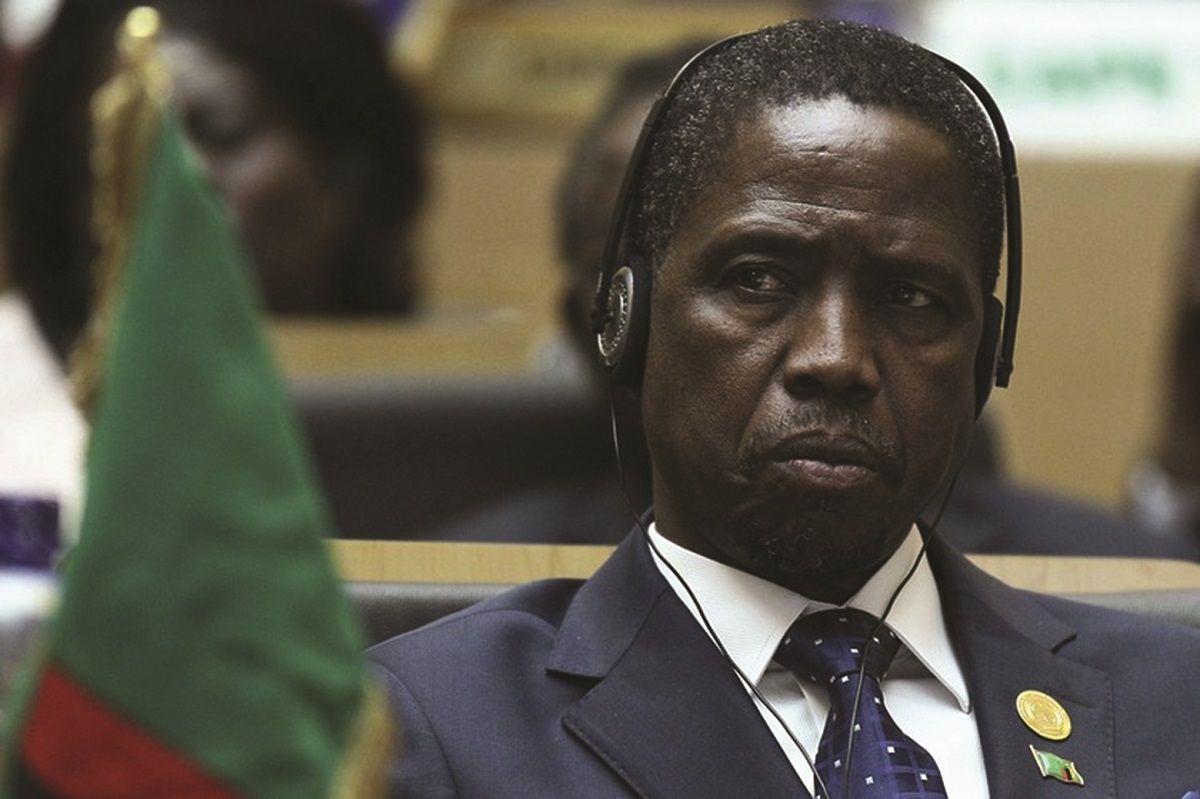Lungu under pressure

Corruption allegations, stalled economic growth and friction from within his own party are making life at the top hard for Zambia's President Edgar Lungu
ELECTIONS IN Zambia are three years away but the political temperature has already reached fever pitch. Just when the ruling Patriotic Front (PF) party was sighing relief over the stalled presidential petition filed by the opposition United Party for National Development (UPND) challenging the outcome of the 2016 elections that saw Edgar Lungu returned to power, it has found itself on the back foot again following a series of corruption allegations.
They were reignited by the resignation in January of foreign minister Harry Kalaba, who denounced the country’s “swelling” levels of corruption, saying they were being “perpetrated by those who are expected to be the solution”.
The MP for Bahati, a constituency in Luapula Province in northern Zambia, also said that the PF had failed to honour its campaign promises as the majority of the population was still living in abject poverty.
In 2016, Zambia was rocked by the sacking of minister of information and broadcasting services Chishimba Kambwili for graft. His departure came amid claims that the government had acquired 42 fire-tenders and ambulances at inflated prices.
As the country’s anti-corruption agency opened an investigation into him, Kambwili, MP for Roan in Luanshya, a mining town in the Copperbelt, advised it to take a closer look at the president.
In February Lungu’s critics said he appeared to be sanctioning corruption when he quoted the local proverb ubomba mwibala, alya mwibala, alya mwibale lyakwe, which loosely translates as ‘you may eat from the field but do not finish the seed’. In other words, you may steal, but not too much.
Although Lungu’s supporters say his words have been mischievously misinterpreted, the exit of Kambwili, who is consultant for the new opposition party, the National Democratic Congress (NDC), and Kalaba’s resignation are undermining the PF’s popularity in the Copperbelt and the Northern Province, its main power bases.
President Lungu reacted swiftly to maintain the PF’s influence here and also in Muchinga Province by reshuffling his cabinet. He has removed Felix Mutati from the ministry of finance, replacing him with Margaret Mwanakatwe, who until her appointment was minister of commerce, trade and industry. Against a backdrop of concern about the country’s rising foreign debt, it is reckoned that Mwanakatwe will enjoy more authority than her predecessor, who was always considered an outsider since his co-option from Movement for Multiparty Democracy (MMD), one of the PF’s coalition partners and erstwhile governing party from 1991 to 2011.
Zambia’s external debt as at end-May 2017 increased to $7.2bn from $6.9bn in December 2016 on account of new loans that have been accrued.
The country is desperate for an International Monetary Fund (IMF) bail out but the lending agency has put its much anticipated $1.3bn loan deal with the Zambian government on hold.
IMF communications director Gerry Rice confirmed that the negotiations with Zambia have been suspended due to the extent of government borrowing. It is hoped that Mwanakatwe’s background as a respected accountant and banker may persuade the IMF to return to the table. However, analysts feel that is more a question of whether she has the appetite for an IMF bail out programme than the IMF’s misgivings about Zambia’s debt mountain.
Nevertheless, a firm decision about the IMF package must be made in the coming weeks as the uncertainty around the deal is damaging the country’s credit rating. If it goes ahead, it is thought other donors will be more willing to
support Zambia’s economic recovery plan.
Meanwhile, the UPND created a stir when it criticised the red carpet welcome given in February to Democratic Republic of Congo leader Joseph Kabila, who it said had broken his country’s constitution by overstaying his office.
The UPND has now turned its heat on the PF even more by proposing a vote-of-no-confidence against President Lungu in parliament for violating his own constitution, with a number of PF parliamentarians likely to cross the floor in support. At least 21 PF MPs and five independents have so far said they will back the impeachment move.
According to sources from within the UPND and the NDC, the rebel PF MPs feel betrayed by Lungu for appointing MMD members in key ministerial and party positions.
Kambwili appears to be having the last laugh. His supporters claim that Lungu is now serving the wishes of former president Rupiah Banda and newly-appointed minister of information and broadcasting services Dora Silya than the PF rank and file.
Talk of dialogue between President Lungu and main opposition leader Hakainde Hichilema has been heightened with Commonwealth special envoy Ibrahim Gambari suggesting that a committee of eminent persons should be put in place to spearhead it.
Gambari has been to Zambia on several occasions following Commonwealth secretary general Patricia Scotland’s visit to the country during Hichilema’s controversial imprisonment in 2017 for treason after his motorcade failed to give way to one transporting Lungu.
Scotland’s visit was preceded by former Nigerian President Olusegun Obasango’s trip to Zambia to put more pressure on President Lungu, who was widely condemned for Hichilema’s arrest and accused of behaving in a dictatorial manner.



